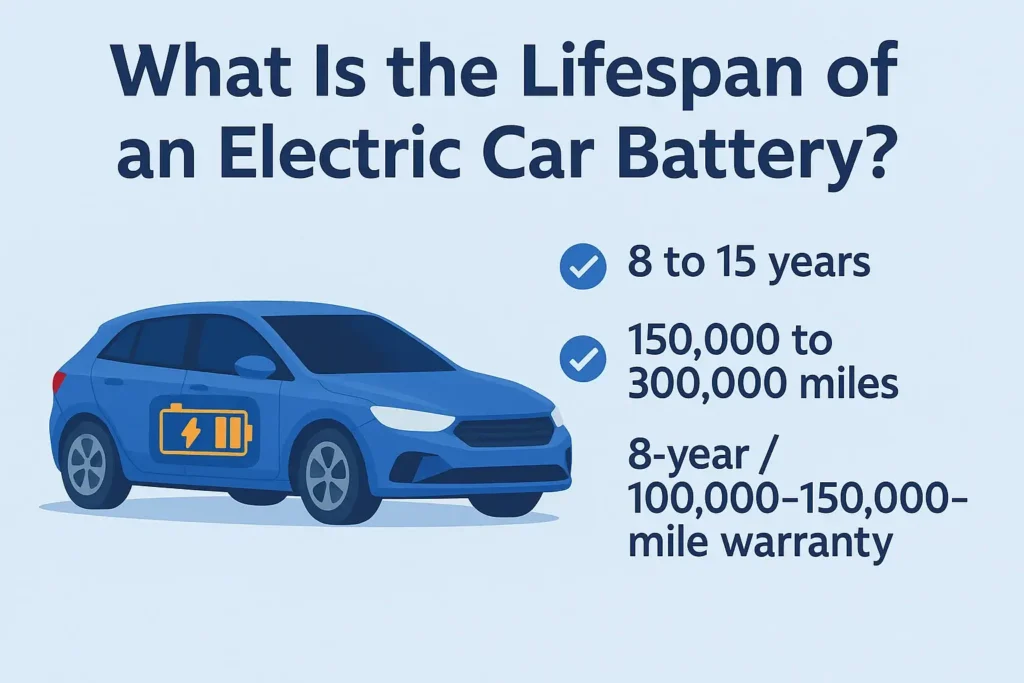What is an Electric cars (EVs) are transforming the future of mobility. Unlike conventional vehicles that rely on internal combustion engines, electric vehicles are powered entirely by electricity. But what exactly is an electric car, and how does it work?
In this comprehensive guide, we’ll explore the key features, benefits, and technologies behind electric vehicles – and how they differ from hybrid cars and traditional combustion-powered cars.
What Is an Electric Car and How Does It Work?
What is an Electric car is a battery-powered vehicle that uses one or more electric motors for propulsion. Instead of gasoline or diesel, it draws energy from a rechargeable battery pack. These cars typically charge from charging stations or standard home outlets and store electricity in lithium-ion batteries, the most common battery type in modern EVs.
Key Components of an Electric Car:
- Electric Motor – converts electrical energy into mechanical energy.
- Battery Pack – usually lithium-ion, powering the entire drivetrain.
- Inverter – converts direct current (DC) from the battery to alternating current (AC) for the motor.
- Thermal Management System – maintains battery and motor temperature for efficiency and safety.
What Type of Battery Is in an Electric Car?
What is an Electric car ,Most EVs use lithium-ion batteries because they offer high energy density, durability, and relatively fast charge cycles. New technologies like solid-state batteries are emerging, promising longer range and enhanced safety.
EV batteries consist of:
- Battery cells grouped into modules
- Thermal management systems to control temperature
- Battery management systems (BMS) to monitor health and efficiency
Some manufacturers are experimenting with battery recycling and supply chain innovations to reduce dependency on rare raw materials like cobalt and lithium.
What Is the Voltage of an Electric Car?
What is an Electric cars typically operate at voltages between 200V and 800V, depending on the model. High voltage systems improve charging speed and performance.
What Is the Cost to Charge an Electric Car?
Charging cost depends on electricity rates and battery size. On average, charging an EV at home costs $10–$15 for a full charge. Public fast charging stations may be more expensive but offer speed and convenience.
Related keywords:
- what is the average cost to charge an electric car
- what is the cost of charging an electric car
- what is the average time to charge an electric car
What Is the Average Range of an Electric Car?
Modern EVs typically offer 200–300 miles (320–480 km) of range per full charge. High-end models like the Tesla Model S can exceed 400 miles. Innovations in energy density and battery degradation control continue to improve these numbers.
🔧 What Is the Maintenance on an Electric Car?
EVs require less maintenance than internal combustion engine vehicles:
- No oil changes
- Fewer moving parts
- Lower brake wear (due to regenerative braking)
Common maintenance tasks include tire rotation, brake fluid replacement, and software updates.
What Is the Lifespan of an Electric Car Battery?
EV batteries are designed to last 8–15 years depending on usage and climate. On average:
- Battery lifespan: ~150,000–200,000 miles
- Degradation may reduce capacity over time, but most EV owners see less than 20% loss after 10 years.

What Is It Like to Drive an Electric Car?
What is an Electric car, Driving an electric car is smooth, quiet, and responsive:
- Instant torque provides fast acceleration.
- No gear shifts = seamless driving experience.
- Regenerative braking adds range and control.
Most users describe EV driving as futuristic and relaxing.
What Is the Advantage of Having an Electric Car?
Electric vehicles offer both environmental and financial benefits:
- Zero tailpipe emissions
- Lower running costs
- Eligibility for tax credits and incentives
- Contribution to the transition to renewable energy in transportation
What Is a Heat Pump in an Electric Car?
A heat pump in EVs is a system that efficiently manages cabin temperature by drawing heat from the environment. It uses less energy than traditional resistive heaters, thereby preserving battery range – especially in colder climates.
Learn More from Authoritative Sources
Electric cars are constantly evolving, and understanding their core concepts can empower buyers, enthusiasts, and industry professionals alike. For a deeper dive into their history and development, visit the Wikipedia page on electric cars.
Conclusion
So, what is an electric car? It’s not just a vehicle — it’s the foundation of a cleaner, more efficient, and technologically advanced future in transportation.
With lower maintenance, environmental benefits, and thrilling performance, EVs are no longer a trend — they’re the new standard.
Looking to compare it with other alternatives? Read our What Is a Hybrid Car and What Is a Car articles to complete your understanding.




3 Comments
Pingback: What Is The Make Of A Car? Proven Facts Every Car Owner Should Know 2025 - Cars - AutocarsBlog
Pingback: What Is A Car Transmission? | Key Functions, Types & Warning Signs 2025 - Cars - AutocarsBlog
Pingback: Who Makes Genesis Cars? 7 Impressive Facts That Prove It’s A Game-Changer In 2025 - Cars - AutocarsBlog